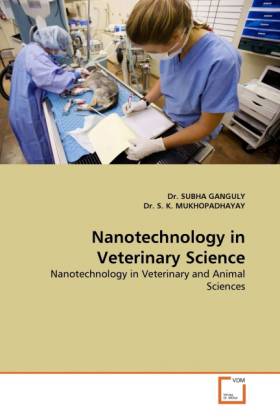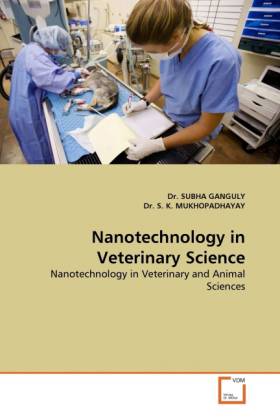
Bedankt voor het vertrouwen het afgelopen jaar! Om jou te bedanken bieden we GRATIS verzending (in België) aan op alles gedurende de hele maand januari.
- Afhalen na 1 uur in een winkel met voorraad
- In januari gratis thuislevering in België
- Ruim aanbod met 7 miljoen producten
Bedankt voor het vertrouwen het afgelopen jaar! Om jou te bedanken bieden we GRATIS verzending (in België) aan op alles gedurende de hele maand januari.
- Afhalen na 1 uur in een winkel met voorraad
- In januari gratis thuislevering in België
- Ruim aanbod met 7 miljoen producten
Zoeken
Nanotechnology in Veterinary Science
Nanotechnology in Veterinary and Animal Sciences
Subha Ganguly, S. K. Mukhopadhayay
Paperback | Engels
€ 69,45
+ 138 punten
Omschrijving
Nanotechnology refers to the use of very tiny (nano-scale) materials in a range of novel ways. Nano' means tiny and nano-particles are tiny particles, more than 8000 times smaller than a human hair. The properties of nano-particles make them suitable for a range of environmental applications, both in terms of improving existing environmental problems or by anticipating and preventing future environmental problems. Some of the greatest potential uses or application of nanotechnology in the environment are as biosensors and in the sectors of treatment, agriculture, veterinary and medical sciences, fisheries, bioremediation and for green nanotech manufacturing and engineering. The present article has been constructed considering the tremendous potential and application of nanoscience and nanotechnology in the concerned fields.
Specificaties
Betrokkenen
- Auteur(s):
- Uitgeverij:
Inhoud
- Aantal bladzijden:
- 56
- Taal:
- Engels
Eigenschappen
- Productcode (EAN):
- 9783639369137
- Verschijningsdatum:
- 10/07/2011
- Uitvoering:
- Paperback
- Afmetingen:
- 152 mm x 229 mm
- Gewicht:
- 95 g

Alleen bij Standaard Boekhandel
+ 138 punten op je klantenkaart van Standaard Boekhandel
Beoordelingen
We publiceren alleen reviews die voldoen aan de voorwaarden voor reviews. Bekijk onze voorwaarden voor reviews.









